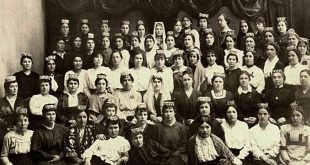A number of important verses in the Qur’an reflect diversity and encourage Islamic believers to seek peaceful coexistence with those of other faiths, especially those designated as “people of the Book,” specifically Christians, Jews and Sabeans.
The Qur’anic period of Islamic history took place in a social context of significant diversity. A number of important verses in the Qur’an reflect this diversity and encourage Islamic believers to seek peaceful coexistence with those of other faiths, especially those designated as “people of the Book,” specifically Christians, Jews and Sabeans. In the later classical period of Islamic history, the exegesis of Islamic jurists markedly de-emphasized peaceful coexistence in favor of interpretations encouraging conquest and religious uniformity. Although the classical jurists have exercised enormous interpretive authority in subsequent Islamic history, their authority was never understood to be absolute or equal to the authority of the Qur’an itself. It is the challenge for Muslims in contemporary times to recover the authority of Qur’anic verses encouraging peaceful coexistence and respect for human diversity, not merely as a social strategy, but as an integral devotional aspect of better understanding the God who transcends all human understanding…. Continue Reading
Bibliographic Information
Title: Peace and War in the Qur’an and Juridical Literature: A Comparative Perspective
Author: Liyakat Takim
Published in: The Journal of Sociology & Social Welfare: Vol. 38: Iss. 2, Article 8
Language: English
Length: 23 pages
 Ijtihad Network Being Wise and Faithful Muslim in the Contemporary World
Ijtihad Network Being Wise and Faithful Muslim in the Contemporary World

